Its time we developed a new appreciation for these misunderstood and much-maligned marsupials.

BANDICOOT MENACE”, cried a heading on the letters page of Sydney’s The Sun back in 1951. Armed with a dictionary definition, the newspaper’s aggrieved correspondent declared that the so-called menace was more precisely a “large Indian rat”, and one no more native to Australia than the “rabbit or bulbul”.
What of the supposed foreigner’s crime? The bandicoot apparently posed a grave threat to humans and dogs through “its propensity as a carrier and distributor of ticks”. Other newspaper reports of the day said much the same: the bandicoot was the animal “ticks love best”. The drastic, if improbable, proposed solution was to confine bandicoots to the zoo! Almost 70 years on, bandicoots still roam free, thankfully. But the vitriol directed their way has, if anything, intensified and the tick controversy endures. Some Australian native animals are always receiving a bad rap.
What’s in a name? In one sense, that 1950s rat association was correct. The term ‘bandicoot’ originated on the Indian sub-continent as an 18th-century corruption of ‘pandi kokku’ (literally ‘pig-rat’) from the language Telugu, and ‘bandicoot rat’ has long been the common name for several species of giant rodent found in south Asia. They are significant agricultural pests and can carry dangerous diseases such as plague and typhus. But the black-and-white certainty regarding the origin of Australia’s totally unrelated animals was of course wrong. Only the name is an Asian import.
Diese Geschichte stammt aus der September-October 2018-Ausgabe von Australian Geographic Magazine.
Starten Sie Ihre 7-tägige kostenlose Testversion von Magzter GOLD, um auf Tausende kuratierte Premium-Storys sowie über 8.000 Zeitschriften und Zeitungen zuzugreifen.
Bereits Abonnent ? Anmelden
Diese Geschichte stammt aus der September-October 2018-Ausgabe von Australian Geographic Magazine.
Starten Sie Ihre 7-tägige kostenlose Testversion von Magzter GOLD, um auf Tausende kuratierte Premium-Storys sowie über 8.000 Zeitschriften und Zeitungen zuzugreifen.
Bereits Abonnent? Anmelden

SULAWESI SENSATIONS
There are worlds within worlds and marvels untold waiting to be experienced on Indonesia's remote islands.
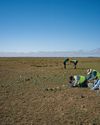
SEARCHING FOR AUSSIE DINOSAURS
Our understanding of where to find ancient life in Australia has been turned on its head by a new appreciation of the country's geology. Now the world is looking to our vast outback as the latest hotspot to locate fossils.

THE HARDEST NIGHT
The first Australian ascent of Mt Everest in 1984 is one of the great feats of mountaineering. Climbed by a small team semi-alpine style, with no bottled oxygen, via the Great (Norton) Couloir, it remains unrepeated 40 years later.
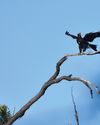
WEDGE-TAILED WONDER
The chance discovery of an eagle nest leads to an extended vigil observing normally hidden behaviours of one of nature's supreme winged marvels.
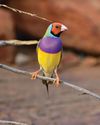
BURDENED BY BEAUTY
Northern Australia's Gouldian finch survives in huge numbers in cages around the world, but its wild population continues to struggle.

A TELESCOPE FOR A GOLDEN AGE
After a stellar 50 years as one of the country's major scientific assets, the AAT continues to play a major role in keeping Australian astronomy on the world stage.
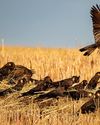
COCKY WHISPERING AT COOMALLO CREEK
This patch of remnant bush on the edge of the West Australian wheatbelt is a place loved by one of Australia's rarest bird species and the man who has studied the site for more than 50 years.

A PIONEERING PAIR
Louisa Atkinson and her mother, Charlotte, were among Australia's earliest authors, and pioneers in women's rights.

THE LONGEST WALK
Lucy Barnard is walking from Argentina to Alaska -the length of the Americas - on an extraordinary journey of endurance and adventure.
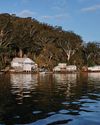
SECLUDED, BUT NOT ALONE
In an era of heightened social isolation, where many of us lead lonely lives, Dangar Island offers the chance to be part of a supportive, connected community.